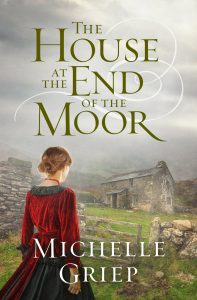By Michelle Griep, @MichelleGriep
A newbie writer contacted me the other day asking if I thought he needed a professional edit on his manuscript before sending it in to an agent or publisher. I’ve got several editor buddies, so seems like I’d say, “You betcha,” without even blinking. Umm, not so much. There are several factors you should consider. Three, actually.
- The Time Factor
How much elbow grease do you want to put into this? Editing and re-editing takes time, and first manuscripts are notorious for being time bandits. If you want a quick and easy edit, pay for it. But if you’re willing to take the time to find and work with critique buddies and swap critiques, this can be a win-win situation.
- The Money Factor
Editing is expensive. Do you have enough cash to cough up for a professional edit? I’m not talking a cheapy read-through by an “editor” off Craig’s List. If you decide you do have the bankroll to fund this effort, check the editor’s credentials and read reviews.
- The Proficiency Factor
How good of a grasp do you have on grammar? Is your dialogue formatted properly? Is spellcheck your only hope of readable copy? If you lack in any of these areas, then yes, you should get a pro to whip your copy into shape. But (and I’ve always got a big but) if you’re going to be a writer, perhaps you ought to master these skills before you go trying to land a contract.
Now then, with all these things being said, if you’re planning on self-publishing you MUST pay for a professional edit. There’s no way around it.
As for traditional publishing, it’s not a requirement that you hire an editor, but then again, neither will it hurt you. You’ve only got one shot at impressing the acquisitions department, so send off your best possible work.
The House at the End of the Moor
What Can a London Opera Star and an Escaped Dartmoor Prisoner Have in Common?
Opera star Maggie Lee escapes her opulent lifestyle when threatened by a powerful politician who aims to ruin her life. She runs off to the wilds of the moors to live in anonymity. All that changes the day she discovers a half-dead man near her house. Escaped convict Oliver Ward is on the run to prove his innocence, until he gets hurt and is taken in by Maggie. He discovers some jewels in her possession—the very same jewels that got him convicted. Together they hatch a plan to return the jewels, clearing Oliver’s name and hopefully maintaining Maggie’s anonymity.
 Michelle Griep’s been writing since she first discovered blank wall space and Crayolas. She is the author of historical romances: The Captured Bride, The Innkeeper’s Daughter, 12 Days at Bleakly Manor, The Captive Heart, Brentwood’s Ward, and A Heart Deceived, but also leaped the historical fence into the realm of contemporary with the zany romantic mystery Out of the Frying Pan. If you’d like to keep up with her escapades, find her at www.michellegriep.com or stalk her on Facebook, Twitter, or Pinterest.
Michelle Griep’s been writing since she first discovered blank wall space and Crayolas. She is the author of historical romances: The Captured Bride, The Innkeeper’s Daughter, 12 Days at Bleakly Manor, The Captive Heart, Brentwood’s Ward, and A Heart Deceived, but also leaped the historical fence into the realm of contemporary with the zany romantic mystery Out of the Frying Pan. If you’d like to keep up with her escapades, find her at www.michellegriep.com or stalk her on Facebook, Twitter, or Pinterest.


